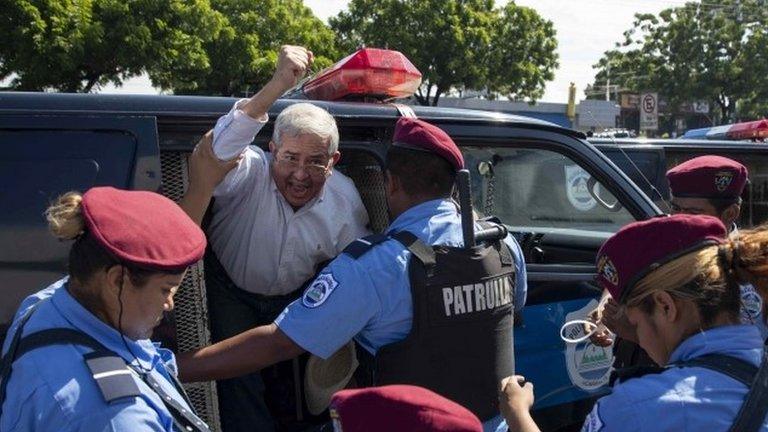Carlos Fernando Chamorro: Nicaraguan journalist flees citing threats
- Published
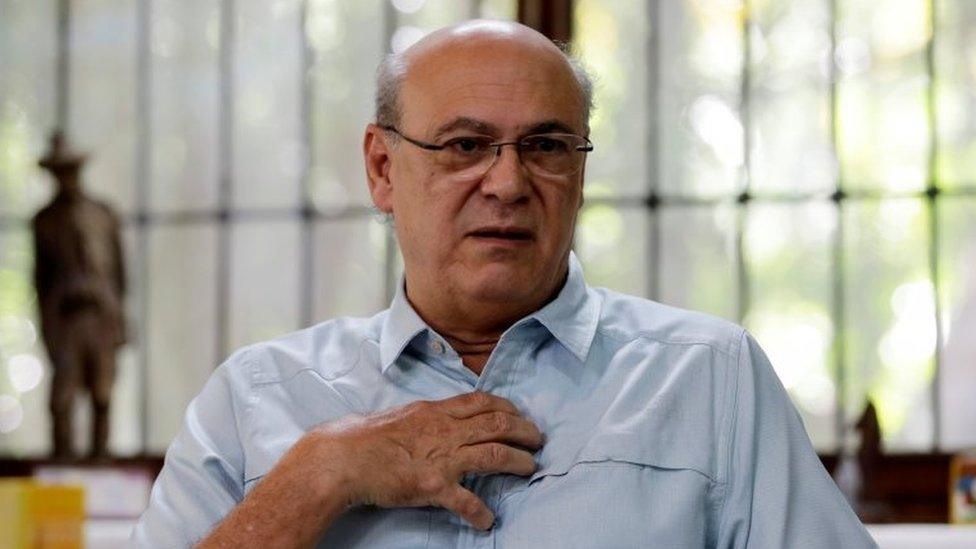
Carlos Fernando Chamorro says he has gone into exile in neighbouring Costa Rica
A Nicaraguan journalist who has been openly critical of the government of President Daniel Ortega says he has gone into exile in Costa Rica.
Carlos Fernando Chamorro said he had made the decision to leave Nicaragua with his wife after receiving a series of threats.
Chamorro's move comes five weeks after the digital newspaper he edits, El Confidencial, was raided by police.
He is the latest in a series of independent journalists to leave.
Chamorro, who comes from an influential Nicaraguan family, also hosts a weekly TV show and is one of the country's best-known journalists.
He is the son of Violeta Chamorro, who governed Nicaragua from 1990 to 1997 after beating Mr Ortega in the 1990 presidential election. His father, Pedro Joaquín Chamorro, was shot dead when he was the editor of La Prensa, a newspaper which opposed the rule of the Somoza family in Nicaragua.
'Extreme threats'
Chamorro's offices were raided on 14 December, the same day police searched the premises of a number of non-governmental organisations which had denounced alleged human rights abuses in Nicaragua.
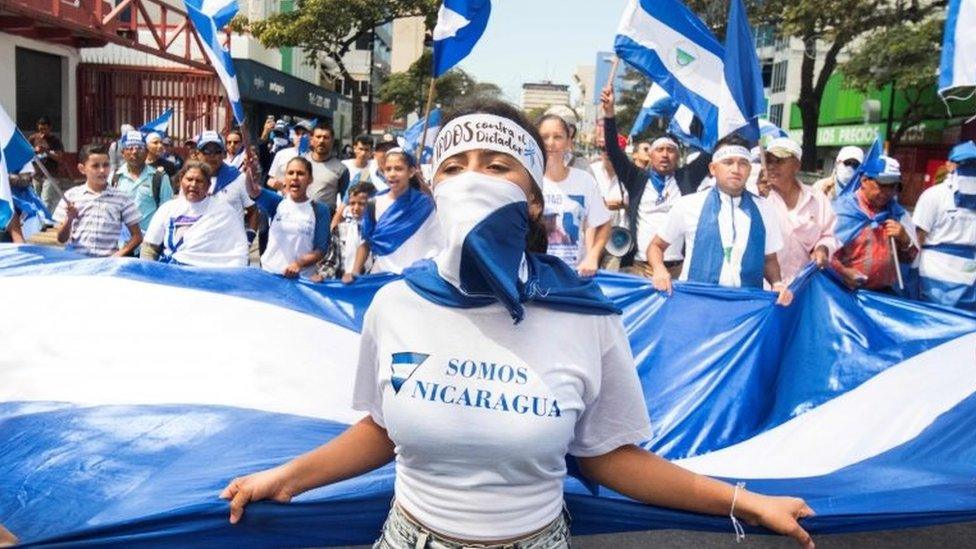
Thousands of Nicaraguans have left for Costa Rica, from where they have been protesting against Daniel Ortega

Read more about Nicaragua's crisis:

Speaking from the capital of neighbouring Costa Rica on Sunday, he said that while he had been recurring to all legal avenues to put an end to "the occupation of our newsroom", the threats against him had worsened and he feared being labelled a criminal in his home country.
"In the face of these extreme threats I've had to take the painful decision to go into exile, above all to be able to continue practising independent journalism," he said, broadcasting his weekly show from San José.
Chamorro said that he would "continue to investigate and denounce crimes, corruption and impunity and to document the terminal crisis of this dictatorship".
His comments come as criticism of the Nicaraguan government is being stepped up both inside Nicaragua and abroad.
Blank page
On Friday, La Prensa published a practically blank front page, with only one question on it: "Have you imagined living without information?"
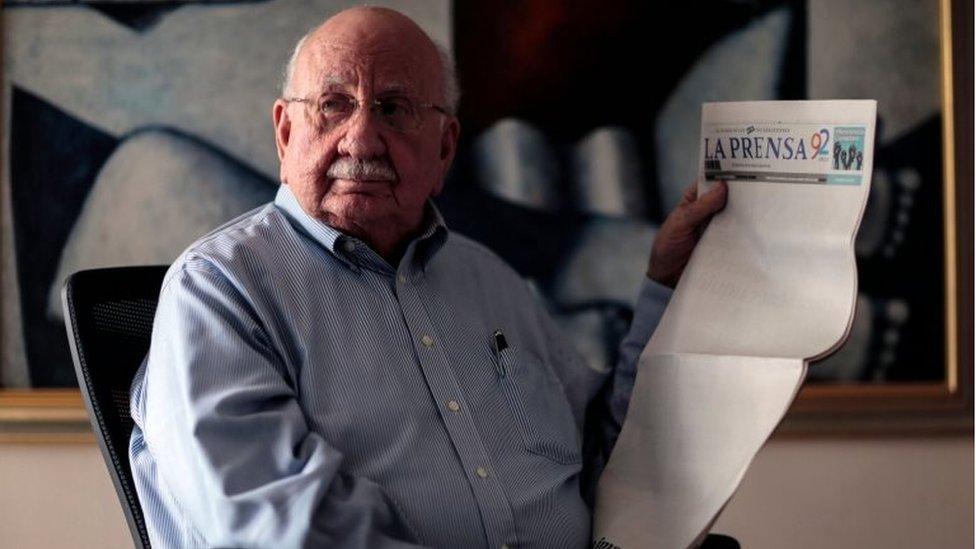
La Prensa's front page was almost entirely blank on Friday
The daily said that "independent media outlets, [including] radio, television, digital platforms or print publications have been silenced one by one, limiting access to the already little information that Nicaraguans have had since 19 April", referring to the day a wave of anti-government protests began to sweep through Nicaragua.
The government crackdown which followed has been widely denounced by international bodies, including the United Nations, whose team was expelled from Nicaragua in September.
More than 320 people have been killed and 600 arrested in the unrest, while thousands more have fled the country, according to figures by human rights groups.
On Monday, the European Union warned it could impose sanctions on the Central American nation.
EU foreign ministers meeting in Brussels said that "recent measures targeting civil society organisations and independent media [in Nicaragua] constitute another blow to democracy, human rights and civic freedoms aggravating the political and social crisis".
- Published16 December 2018
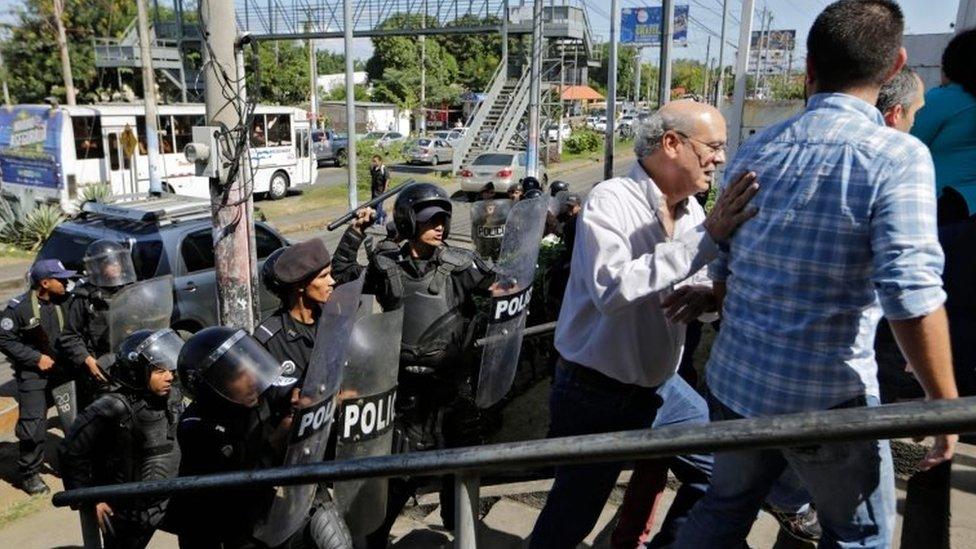
- Published27 November 2018
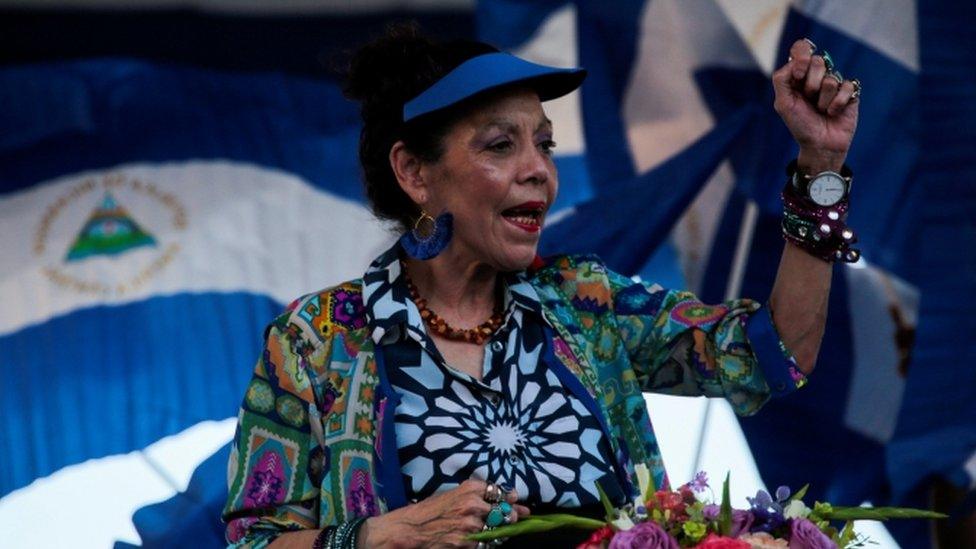
- Published16 October 2018
